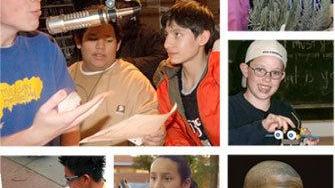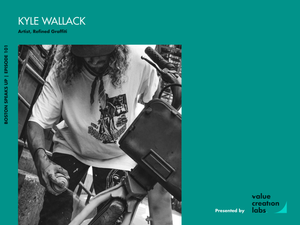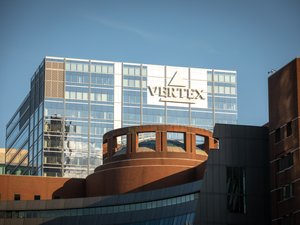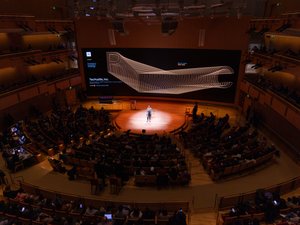
This post is part of a series profiling the 2014 #SoGood Award winners announced at June’s State of Innovation Forum. These worthy winners are companies and individuals who are heavily contributing to social good in Boston and beyond. Read their stories to discover how you can give back.
It’s an unfortunate reality that there exists two Americas: one of the the haves and one of the have-nots. Economic inequality is a severe problem in our country and the gap between the rich and poor only continues to widen. But what is most tragic about the gap in wealth is the resulting opportunity gap that sets some students up for success while holding others back.
Most tend to accept this sad fact as the “way it is,” the set status quo that cannot be altered - at least not with any ease. But there are a few who refuse to accept this inequality and deny that your destiny must be defined by the cards your dealt.
Citizen Schools is among that bold minority who instead of being bystanders to injustice decided to take action. The non-profit born here in Boston strives to close the opportunity gap, and thereby the achievement gap, plaguing our country.
“By the time they are in sixth grade, it’s estimated that students from middle and upper-income families have spent 6,000 more hours learning than their lower-income peers,” Tom Birmingham, Executive Director of Citizen Schools Massachusetts, said.
These added hours of academic attention and extracurricular enrichment place privileged students on the fast track to success, leaving underserved students in the dust. Citizen Schools aims to correct his imbalance by providing public middle schools in low-income communities with a longer learning day. Their innovative Expanded Learning Time model brings a team into the classroom after school to provide extra academic support and exploratory learning experiences called apprenticeships.
“Our expanded learning day mobilizes volunteers from the community who teach hands-on ‘apprenticeship’ classes for a semester, which help close this gap and bring real-world relevance to what students are learning in class,” Birmingham said. “By partnering with companies, we are able to provide students with a vast range of apprenticeships including programming robots, designing video games, marketing a product they created, making financial investments, and more.”
Access to these opportunities places students on par with their privileged peers leading to higher levels of achievement.
“Students at our partner schools are enrolling in college at a rate of 63 percent, compared to Boston’s average of 41 percent,” Birmingham said.
Clearly, progress is possible. The status quo is not set in stone.
For discovering an innovative solution for closing the opportunity gap, Citizen Schools deservedly scored the 2014 Non-Profit Initiative #SoGood Award. We sat down with Tom Birmingham to learn more about Citizen Schools’ mission, model, and impact.
BostInno: Share the story behind Citizen Schools.
Tom Birmingham: Citizen Schools began when Eric Schwarz and Ned Rimer wanted to provide students in Boston with engaging, hands-on learning experiences. The founding idea was to connect working professionals from the community with public middle school students to teach a skill that would build off of their current course work. In 1995, they offered a journalism apprenticeship to 10 students at Paul A. Dever Elementary School in Dorchester, MA. The apprenticeship class created and printed their own newspaper and watched it fly off of a real printing press. They were hooked. Today, Citizen Schools serves over 5,000 students in seven states and mobilizes a team of educators including 240 AmeriCorps Teaching Fellows and over 4,000 volunteers.
What kind of impact has your non-profit had here in Boston?
We have had significant impact on the students we serve in Boston, particularly since the implementation of our Expanded Learning Time (ELT) model. We have been a strong turnaround partner for Orchard Gardens K-8 School and Edwards Middle School, where we have helped to close achievement gaps in math and English Language Arts (ELA) by providing more time for learning. Students at our partner schools are enrolling in college at a rate of 63 percent, compared to Boston’s average of 41 percent. Eighth graders who have participated in our program are also applying and getting accepted into some of the best high schools in Boston.
What has been key to your success?
We partner deeply with ?school principals? and teachers? to ensure that our curriculum? aligns with the priorities of the school. We also engage nearly ?1?,?000 volunteers each year in Massachusetts from businesses like Biogen Idec, Google, ?and ?Fidelity Investments and universities such as MIT, Harvard University, and Northeastern University. Our ?apprenticeship program? brings relevance to learning and? is structured ?to create a bridge between the corporate and university communities and public schools. We are also supported by Boston Public Schools, corporations like EMC, Cubist, ?and ?State Street, many local and family foundations?,? and hundreds of individual supporters.
What do you love most about being a part of Citizen Schools?
I joined Citizen Schools Massachusetts as Executive Director this spring to continue the efforts I led in drafting and passing the Education Reform Act of 1993. We have yet to fulfill the commitment of that act to address the achievement gap in the Commonwealth. I believe Citizen Schools is capable of closing the gap by offering more students from low-income communities access to opportunities that upper-income families provide to their children.
What kind of feedback have you received from the communities you serve?
We often hear from volunteers that they enjoy sharing their expertise with students and see improvements in their professional performance including their public speaking skills and their relationships with coworkers. Of course we are very happy to hear that volunteers are being impacted as much as the students we serve. School leaders and teachers also see the value we bring to schools including providing more time for teacher collaboration, additional time to complete school work and go over lessons, and regular calls with families to inform them of their student’s academic progress.
What do you envision for the future of Citizen Schools?
We have proven the value that Citizen Schools brings to schools, but now we need to bring the program to scale. Our organization is truly a collective effort, bringing the public and private sectors together. I would like to see deeper support from the legislature and local companies so we can provide better opportunities to Boston’s public middle schools. In Chelsea, we would like to expand our program to all students.
How important are volunteers to your organization?
Volunteers are critical to our model. Their dedication and support ensures students receive more enriching opportunities and connections to successful adults. My advice to someone considering volunteering would be that it begins when you enter the classroom and commit to sharing your knowledge with students. Your commitment to students will not only impact them in years to come but will also be fulfilling to you personally and professionally, helping you to build your workplace skills. There’s no better place to practice presenting than in front of a group of 13-year-olds!








